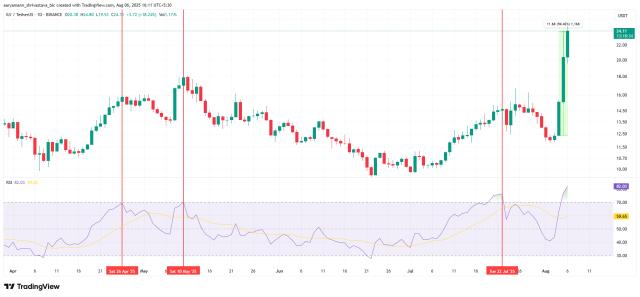SEC has issued a statement about Liquid Staking Tokens (LSTs), clarifying how these staking activities and other staking activities comply with securities laws. The committee has relaxed existing regulations, but not with a completely free approach.
To be clear, this is a non-binding statement, and the SEC's perspective on this matter may change in the future. However, currently, this clarity can be very helpful for cryptocurrency companies.
SEC's View on Liquid Staking
U.S. federal crypto regulation is at a hot moment, with the SEC's "Crypto Project" drawing attention and a Web3 policy initiative with the CFTC.
Today, the SEC's Corporate Finance Division has issued another clarification, seemingly relaxing restrictions on Liquid Staking Tokens:
"In the Division's view, Liquid Staking activities related to Protocol Staking are not involved in the offering and sale of securities... Therefore, in the Division's view, participants... do not need to register with the Commission under the Securities Act," the statement said.
Liquid Staking is a popular way to earn profits from cryptocurrency, and its prominence in the industry is steadily growing.
By clarifying that LSTs are typically not securities, the SEC has opened up a bit of space for businesses to operate freely. This follows a letter released by several key industry figures last week, requesting the SEC to allow the use of LSTs in proposed Solana exchange trading products.
The provider does not control the staking process, and the new tokens only represent ownership of the deposited assets, but nonetheless, this is a step forward.
Staking ETF: A Useful Precedent?
In some ways, this statement reflects previous SEC statements about liquid staking this year. After an uncertain period, the Commission officially approved most staking activities on ETFs in May.
This has encouraged issuers to include these capabilities in new ETF filings, and some staking ETFs have been traded. Nate Geraci, a famous Bloomberg analyst, stated that this decision represents the "final barrier" for the Commission to approve staking in Ethereum spot ETFs. Hopefully, it will open up new opportunities in many areas.
However, this is not a complete freedom for cryptocurrency liquid staking activities in the U.S. If staking tokens are provided as part of or subject to an investment contract, the Howey test still applies.
There are many exceptions where these activities will clearly be considered securities contracts, requiring SEC oversight.
Moreover, this is a non-binding recommendation from a division within the SEC. It reflects the current thinking of the Commission about liquid staking, but these perspectives can change at any time.
However, this statement provides important clarity, and these perspectives can help businesses understand how to comply.







